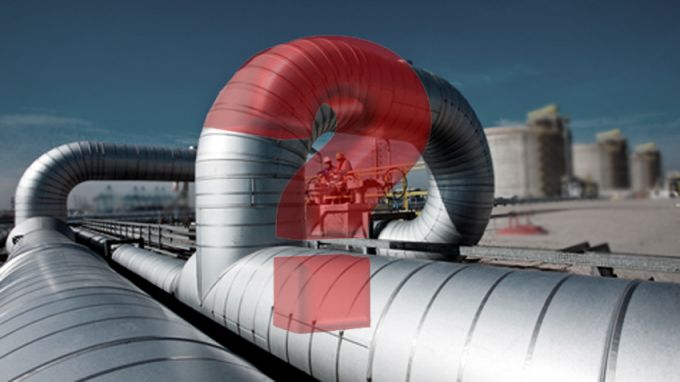
The gas routes will not go round Bulgaria, Premier Boyko Borissov said convincingly several days ago at the international investment round table about his favorite infrastructure project - the Balkan Gas Hub which is expected to be built on the Black Sea coast. The future of the project is not that clear, although it has been in the focus of public interest since the suspension of the South Stream gas pipeline project two years ago, which had to transfer gas from Russia through Bulgaria to Central Europe. Back then Bulgaria, which was relying on significant revenues from gas transit, was forced by Brussels to abandon the project. However, it kept its ambitions to transfer gas, although it is an EU external border and practically has been using Russian gas only delivered through Ukraine.
A gas hub basically means a gas distribution center. First of all it requires sufficient gas quantities. Secondly, it is linked with the existence of customers, who would buy natural gas. However, Bulgaria hasn't fulfilled any of those conditions. It has ideas, but all of them are rather in the scope of good intentions. Unfortunately, Bulgaria has not taken any visible and practical measures aimed at putting those intentions through. Bulgaria's officials say that the country may import gas from Azerbaijan, Iran, Greece, Turkey, etc. It may even find large gas deposits in the Black Sea shelf. Well, all of the above may happen in the future, but it is still not clear how long it would take to start importing gas from those countries or start extracting gas from own resources. On the other hand, the authorities have been talking about the construction of the future gas hub in very short terms. Initially, Brussels was skeptical about Bulgaria's ambitions, but the enthusiasm of the Bulgarian authorities turned out stronger than the rational arguments and the European Commission eventually supported the project and even promised to allot some financing to the gas hub. On Monday, the EC again reaffirmed its support to the Balkan gas hub project during the international round table in the presence of potential foreign investors who arrived in Bulgaria to receive information from their Bulgarian partners about all four versions of the project with an estimated cost of EUR 1.5 billion.
However, on the same day the CEO of Russian energy giant Gazprom Aleksey Miller repeated Russia's Energy Minister Alexander Novak and pointed out clearly and unconditionally that his company would not deliver gas to Bulgaria through the Black Sea bottom. In other words Sofia loses the game again, but this time Moscow has ruined the Bulgarian plans. Bulgaria's Premier Boyko Borissov insisted that Sofia, Moscow and Brussels should hold a trilateral meeting on the future of the Balkan gas hub, which may change things in the future. However, such a meeting is not very likely to be held since Gazprom refused to join the investors' meeting in Sofia, perhaps demonstrating a lack of interest towards the Bulgarian gas projects, which can't be fulfilled without its participation.
English version: Kostadin Atanasov
Bulgaria’s industry is being transformed in the direction of high added value productions, reads an analysis by the Institute for Market Economics. This tendency is best manifested in computer science, electronics and optics which account for the..
Acceleration of inflation to 1.1% in October compared to the previous month was registered by the National Statistical Institute. On an annual basis, the index is 1.8 percent. In October, the prices of goods and services for..
A working group comprising representatives of employers, trade unions and government experts is discussing the proposals of the Ministry of Labor and Social Policy for introducing a new mechanism to determine the minimum wage. This is happening a day..
Urgent reform of Bulgaria's planning districts is needed, local authorities insist.The current regionalization shows increasing economic imbalances in..

+359 2 9336 661
